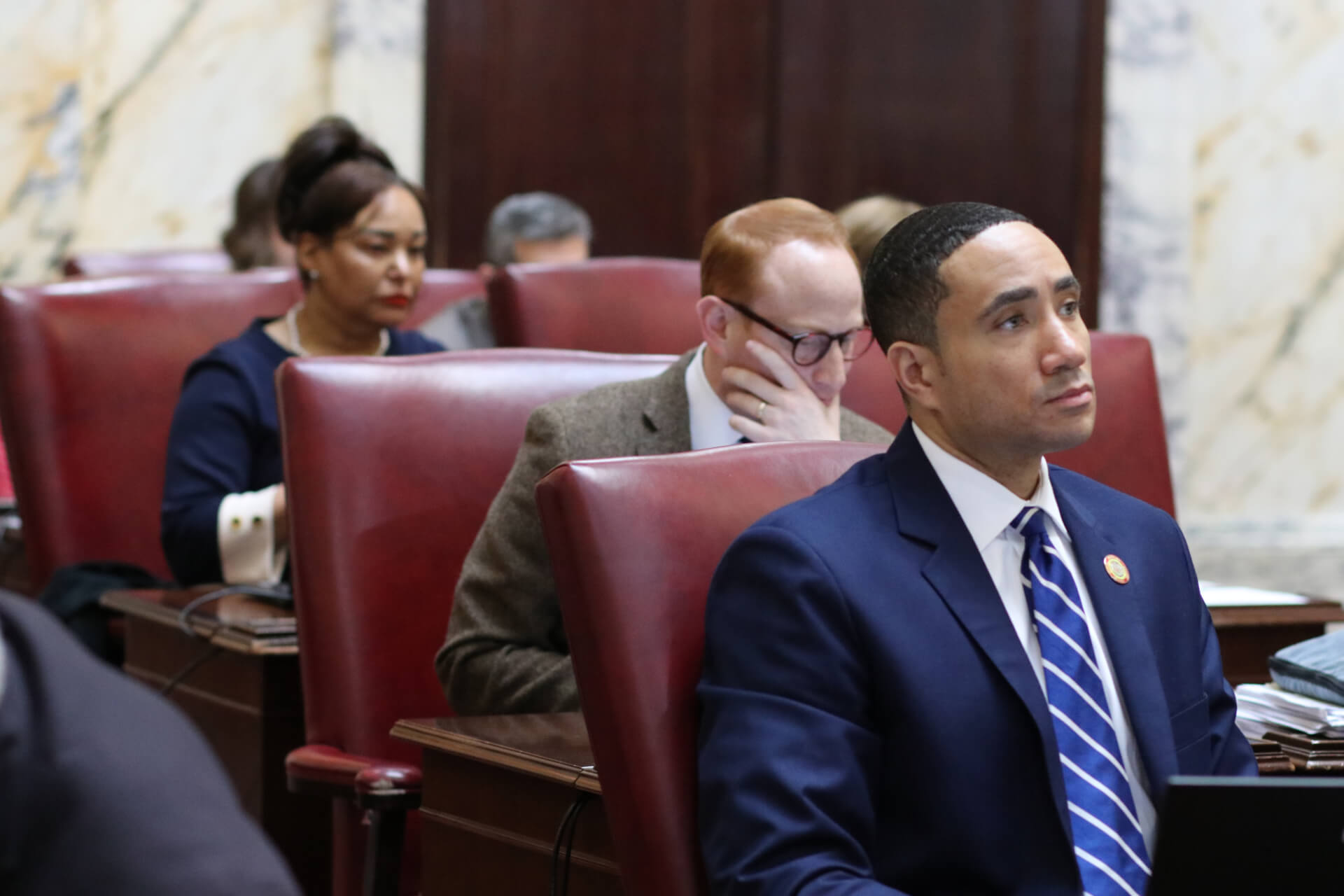Senators Will Consider 15 Police Reform Bills Next Week. Here’s a Look at the Proposals

The Senate Judicial Proceedings Committee released a series of bills Wednesday evening that are set to be discussed at a virtual hearing next week, all of which focus on police accountability and reform.
Judicial Proceedings Chairman William C. Smith Jr (D-Montgomery) Sen. Jill P. Carter (D-Baltimore City) and Sen. Charles E. Sydnor III (D-Baltimore County) have collectively put forth 15 police reform and accountability bills, including one that seeks to completely repeal the Law Enforcement Officers’ Bill of Rights. The measures will be discussed next Tuesday, Wednesday and Thursday from 1 p.m. to 5 p.m. at virtual bill hearings.
Smith announced Tuesday, in an unusual move, that the committee would hear testimony for bills in the interim between the 2020 and 2021 legislative sessions.
“Systemic injustices in policing have plagued our communities for generations and developing the best solutions requires legislators to be thoughtful and purposeful,” Smith said in a statement. “To achieve this, we need participation from all Marylanders to find solutions to heal the relationship between our law enforcement agencies and the communities they serve.”
Advocates and lawmakers have pushed House Speaker Adrienne A. Jones (D-Baltimore County) and Senate President Bill Ferguson (D-Baltimore City) to convene a special session to address police brutality and a host of other pressing issues.
Del. Julian Ivey (D-Prince George’s), one of the most vocal lawmakers in the fight for a special session, has chosen to highlight a victim of police violence on Twitter each day. Wednesday was day 83.
Since the abrupt end of the 2020 session in March, Jones and Ferguson have convened workgroups to recommend legislation on pressing issues. But at a rally by advocates on Wednesday evening, the leaders indicated they will not convene a special session.
On Tuesday, Sept. 22, the Senate committee will hear bills concerning use of physical or deadly force standards, the creation of a misconduct database to establish an officer’s credibility as a witness, the elimination of no-knock warrants, an officer’s duty to intervene and report misconduct, whistleblower protections, and a measure that prohibits purchasing certain military-grade equipment.
Wednesday, Sept. 23, lawmakers will discuss legislation regarding public access to and court admissibility of body camera footage, the ability of state prosecutors to investigate of use of force and fatal officer encounters, financial liability surrounding police misconduct investigations, mandatory drug and alcohol testing after civilian fatalities, and required routine psychological testing for law enforcement officers.
Thursday, Sept. 24, is wholly devoted to two pieces of legislation sponsored by Carter concerning the Law Enforcement Officers’ Bill of Rights, which sets due process rules for police in investigatory and disciplinary scenarios.
One bill looks to expand the authority of the Maryland Police Training and Standards Commission, modify disciplinary hearing protections under the Law Enforcement Officers’ Bill of Rights and allow the public to inspect officer disciplinary records through the Maryland Public Information Act; the other looks to repeal the statute, completely.
Advocates and lawmakers have questioned the Law Enforcement Officers’ Bill of Rights’ necessity at workgroup hearings since the death of George Floyd at the hands of Minneapolis police officers in late May.
Maryland was the first state to adopt the policy in the 1970s and remains just one of 16 states to still have it in effect.
According to an email from Smith’s office to his constituents, bill sponsors will have 45 minutes at the beginning of each hearing to present their legislation. From 1:45 p.m. to 3:15 p.m., six bill proponents and six opponents will testify for two minutes each. Legislators will have time for questions before the public testifies.
The committee is allowing 35 members of the public to testify each day, capping their time at two minutes apiece.
Members of the public can register to testify on the General Assembly website beginning Thursday at 9 a.m. Additionally, one-page of written testimony per individual can be emailed to [email protected] up to two days before the start of the hearings.




 Creative Commons Attribution
Creative Commons Attribution